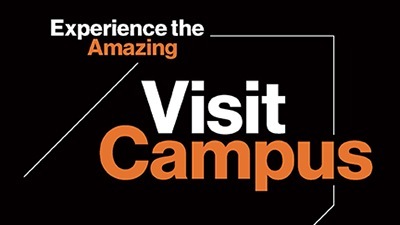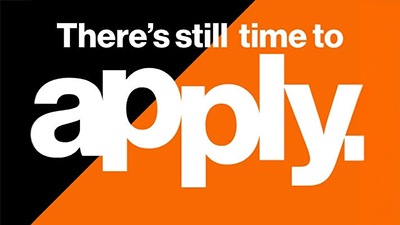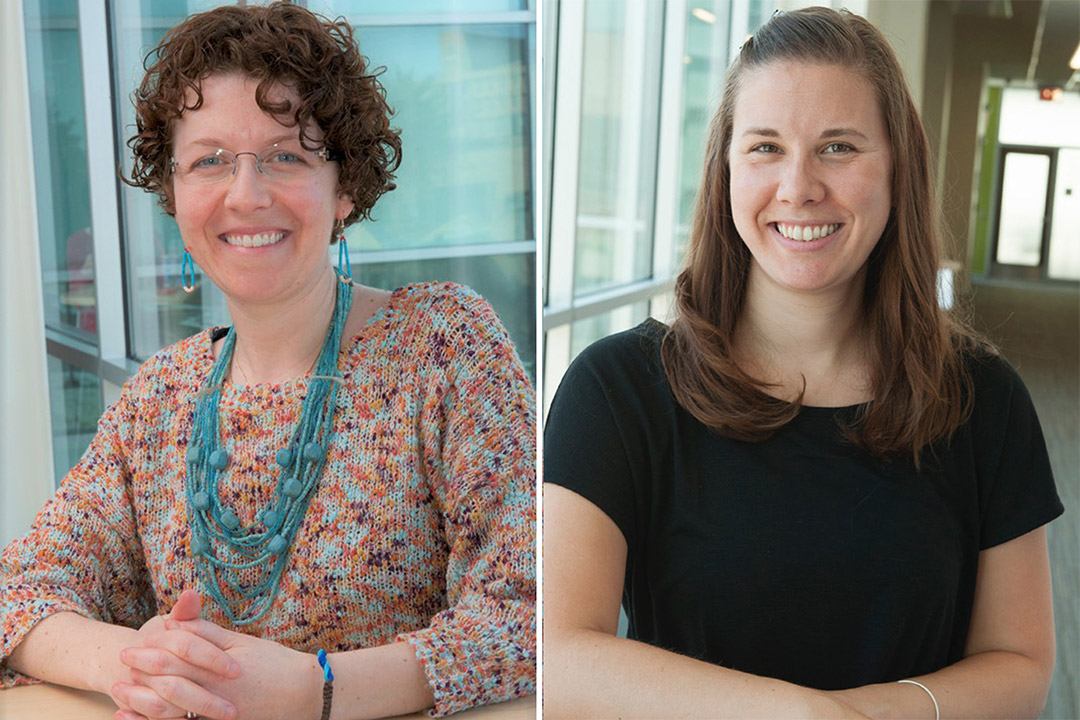RIT/NTID researchers to conduct first national survey on reproductive health experiences of deaf women
Deaf and hard-of-hearing women encounter significant barriers to receiving appropriate reproductive healthcare services and health information
Mike Guinto
Groundbreaking national research conducted by Corrine Occhino, left, and Tiffany Panko will help determine the level of reproductive health care access in women who are deaf and hard of hearing.
For the first time on a national scale, groundbreaking research at Rochester Institute of Technology's National Technical Institute for the Deaf will help determine the level of reproductive health knowledge in women who are deaf or hard of hearing. The research also addresses concerns that deaf and hard-of-hearing women encounter significant barriers to receiving appropriate reproductive healthcare services and health information.
While there is limited data on the sexual health behaviors of deaf and hard-of-hearing individuals, research shows that the combination of inaccessible health resources, use of less effective methods of contraception, and multiple sexual partners increases the chances of deaf and hard-of-hearing women experiencing unintended pregnancy. A study by Willi Horner-Johnson in early 2020 found that deaf and hard-of-hearing women are 67 percent more at-risk of becoming pregnant unintentionally.
There currently are no published studies on deaf and hard-of-hearing women and pregnancy termination,” said Dr. Tiffany Panko, director of RIT/NTID’s Deaf Health Laboratory who, along with her colleague Corrine Occhino, director of the RIT/NTID Multimodal Language lab in the college’s Research Center on Culture and Language, is conducting this research. “To date, little is known about their access to information regarding unintended pregnancy options or their experiences with counseling or care services.”
Panko and Occhino will administer a national survey to gain insight on the reproductive health of deaf and hard-of-hearing women with data on pregnancy experiences and reproductive healthcare use, and conduct semi-structured linguistic interviews to investigate how deaf and hard-of-hearing women use American Sign Language in communicating their knowledge of and thoughts around reproductive health.
The interviews will be conducted remotely in order to capture a study sample representing diversity in population density, education, and access to care. Through the survey and interviews, researchers will identify emergent themes and patterns of experience that indicate deaf and hard-of-hearing women’s knowledge of, and opinions on, reproductive health.
“It is our hope that our findings will lead to the development of culturally and linguistically appropriate educational interventions for healthcare providers who care for deaf and hard-of-hearing women, health media content developers, and deaf and hard-of-hearing community members to promote access to information and effective use of the reproductive healthcare system,” said Panko.
Funding for Panko and Occhino’s research is through a grant from the Society of Family Planning. Initial funding was provided by the college’s Scholarship Portfolio Development Initiative grants program.





